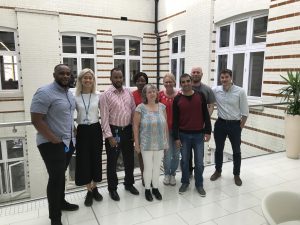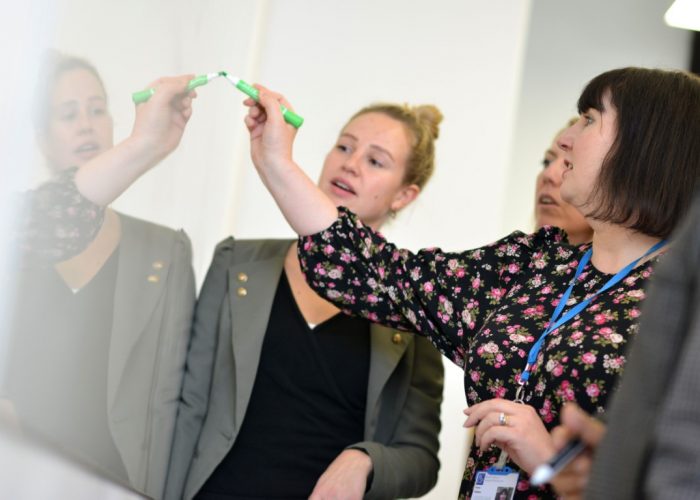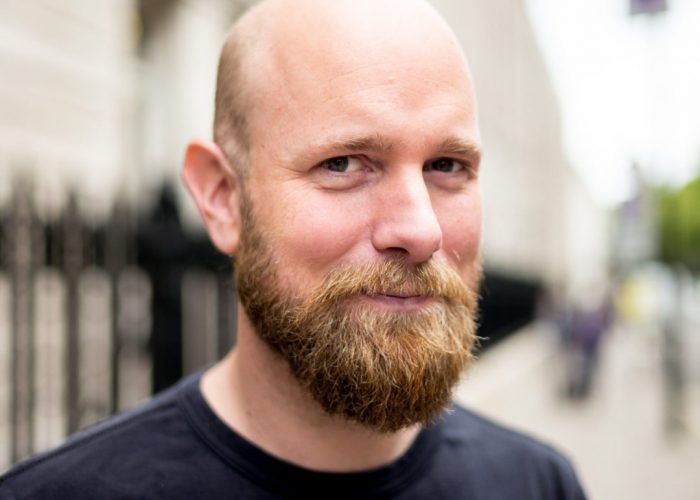
Sharing knowledge through collaboration is a key theme of ICHP’s work, so hosting a workshop for a group of public health students from Oxford Brookes University seemed a perfect fit. Health economist Ralphael Oghagbon organised the day and explains what was involved.
Earlier this year, I visited Oxford Brookes University with Andi Orlowski, our Deputy Director of Business Intelligence, to run an interactive session with a group of students on the university’s public health degree course. Andi spoke about our work in and around population health as there’s a huge shift towards that now and I followed up by talking about the various types of analysis we do in that area – in particular, Social–Technical Allocation of Resources (STAR).
The close relationship between ICHP and Oxford Brookes began back in 2017 after Sally Markwell, the university’s senior lecturer in public health, heard Andi speak at a Health England conference on the impact of the STAR tool. She introduced herself and Andi was keen to explore ways in which ICHP may be able to help support the population health experts of the future. The workshop was the first opportunity we had for us all to really get involved in sharing our wider expertise and demonstrating how all the different teams work together towards a common goal.
It makes sense that students studying public health would be interested in a tool that helps local commissioners better understand value for money and efficient allocation of resources, so the group visited our office to gain some theory and practical experience.
We made sure the students were able to consider the whole process of the work we are asked to do in relation to public health, right the way through from receiving the client brief to the end report using real-life examples. As a case study, we looked at the diabetes app evaluation, which explored whether the use of a digital behaviour change programme can lead to positive health benefits for people with type 2 diabetes mellitus. The group was able to see how we went about creating two cohorts of patients to compare and how the resulting evidence showed there was a change that was attributable to the apps.
The students also looked in depth at the STAR analysis we carried out for Hillingdon CCG to assess its pathway for falls and falls prevention. We explored why the analysis was needed, why the STAR approach was appropriate and what the outcome was, as well as how to use the output to make effective and sustainable long-term change.
STAR analysis is concerned with how an intervention will translate to ongoing positive change in the real world. How can we make small changes to the system that would have a large benefit to the population? STAR breaks it down and performs a value for money analysis by looking at the number of people receiving an intervention and the associated cost. A visual representation is then produced which doesn’t give the final outcome but does generate a discussion. From this, the hope is that commissioners will start to look for answers and consider areas that may not have been apparent before.
In order to follow the process from start to finish, the students spent time with our business intelligence (BI) team, where they sat with data teams to think about trying to source data for analysis and the obstacles they might come across. With the health economics team, they looked at which type of evaluation might suit the question being explored from the brief and considered conversations with the client to discuss the best approach. The innovation delivery team also came on board to explain how they go about helping CCGs and trusts make sustainable changes on a wider scale.
The interactive workshop gave the students a better understanding of how STAR analysis allows stakeholders to widen their conversations around prioritising and investment for risk reduction and health improvement.
It was the first session we’ve hosted for students to share our expertise and insight and the enthusiasm they showed was energising. We’ve had some wonderful feedback and students were able to see that without needing to do an economics degree they could roll out a good evidence-based tool to make recommendations to find the best solution without reductions in quality of care.
Our work is closely aligned with the public health modules taught by Sally. ICHP is a working example of putting the theory into practice complete with solid outcomes to share, while the students give us a unique opportunity to hear from the public health experts of the future on where they think priorities should be and how they approach problems.
Watch this space to find out what form our future collaborations may take!



